Why is Kantree the best alternative to Asana?

Complete Guide [October 24]
It is well-known that Asana is one of the most widely used tools for online project management. Asana is indeed a very popular tool, but that doesn’t necessarily make it the best tool for every use case. When looking at some reviews of Asana and testing it in advanced use cases, we realize its usage is limited. For industrial projects involving complexity and technicality that a standard tool cannot handle, it quickly becomes a headache.
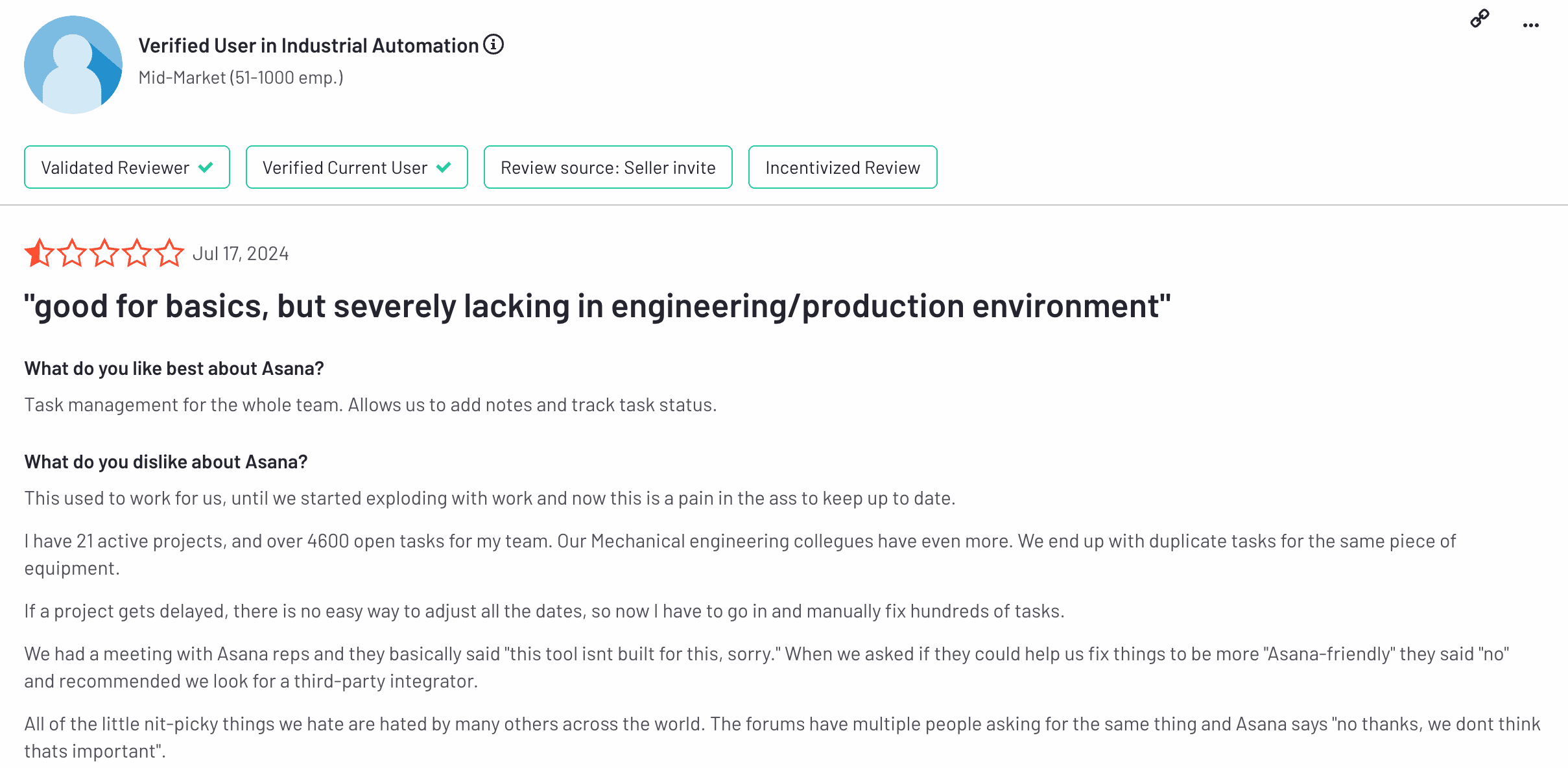 A professional review in the industrial sector, July 2024
A professional review in the industrial sector, July 2024
In this article, we will go through the different basic and essential features of project management, supported by screenshots for each.
For quick access to the essential categories of any online project management software, click on the tested categories:
- Overview of Kantree
- Overview of Asana
- Task management and customization
- Hierarchy and data structure
- Advanced filters and searches
- Kanban board visualization
- Centralized work
- Automated workflows
- Forms and data collection
- Which project tool to choose?
Kantree: the flexible alternative for all types of projects
Its story
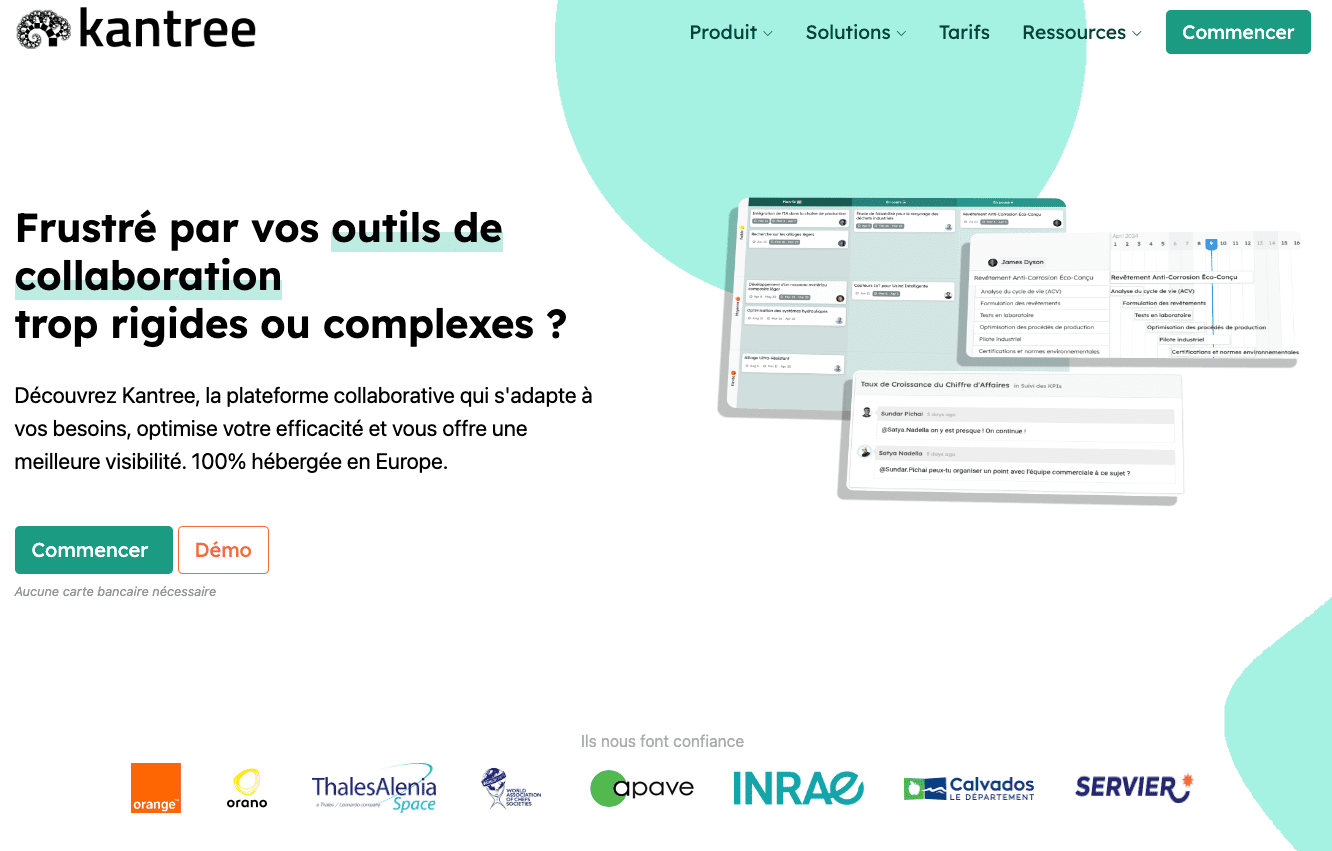
Kantree is a project management software that allows for easy collaboration on tasks and improves team productivity and work visibility. It enables task sharing, real-time project tracking, and even executing customized processes. Kantree was created in 2016, born out of the realization of the complexity and multitude of collaborative platforms on the market. Kantree is managed by Digicoop, a French employee cooperative.
Advantages of Kantree:
- Fully customizable card structure
- Unlimited customizable fields
- Highly configurable views and reports
Asana: the choice for simple project management
Its story
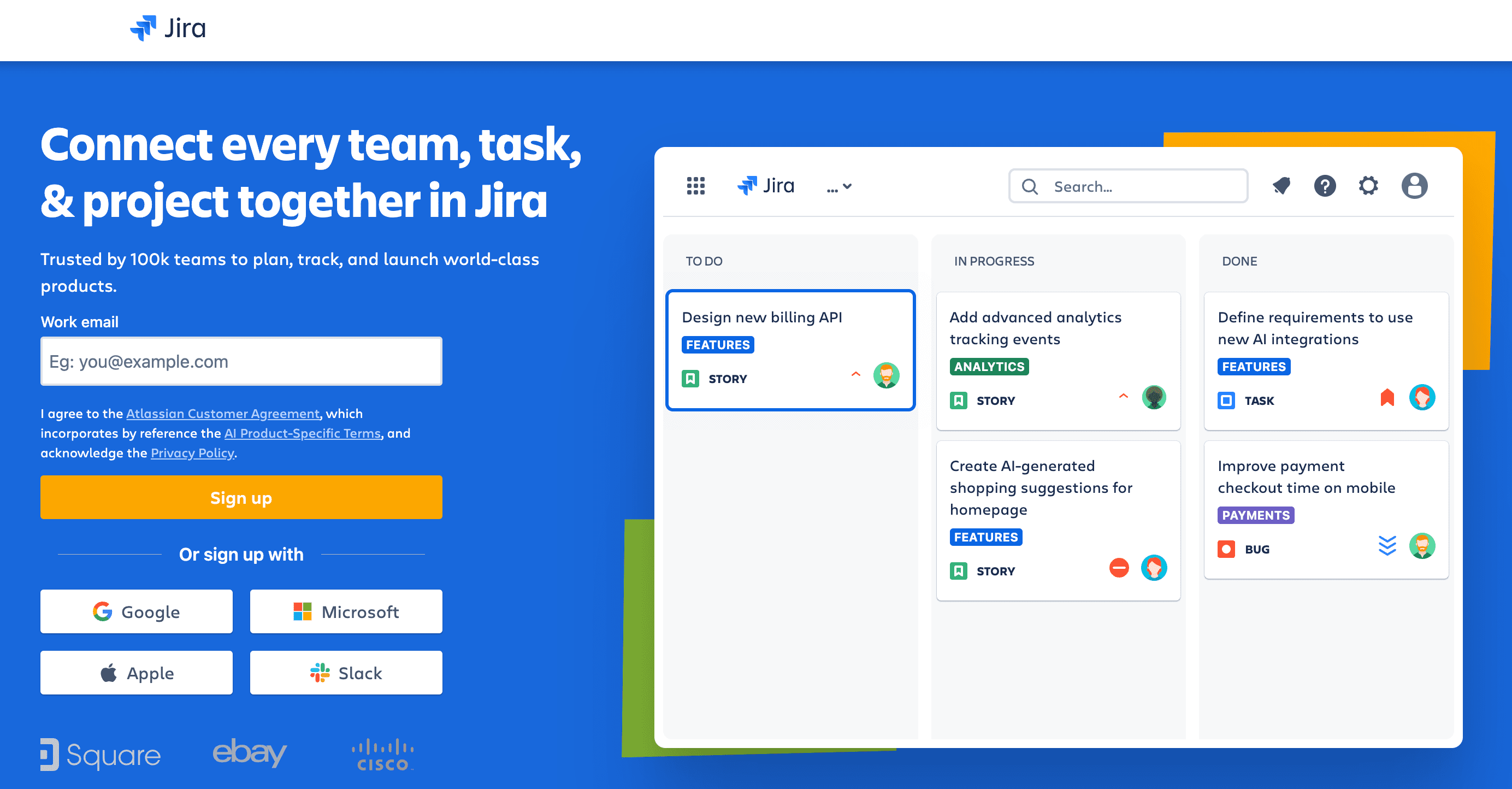
Asana’s founders, Dustin Moskovitz and Justin Rosenstein, met at Facebook. The tool was created in 2011 with the goal of providing better visibility into tasks and deadlines. It is organized into workspaces that contain projects, which in turn contain tasks. Today, the American company is listed on the NYSE (New York Stock Exchange) and generated nearly $547 million in revenue in 2023.
Advantages of Asana:
- Interface designed for task management
- Integration with numerous third-party applications
Functional comparison: Asana vs Kantree
Task management and customization
Asana primarily focuses on tasks and projects, offering a standardized approach. In contrast, Kantree takes a broader view of collaboration, allowing for deep customization of cards and fields. This flexibility of Kantree is particularly advantageous for teams with specific needs or unique processes.
Asana’s focus
The initial focus is on tasks. Indeed, all their terminology is centered around this. The tool is clearly designed for task management and is restricted to this specific use case. From onboarding, Asana guides the user to fill in tasks. It is, therefore, built for simple project management.
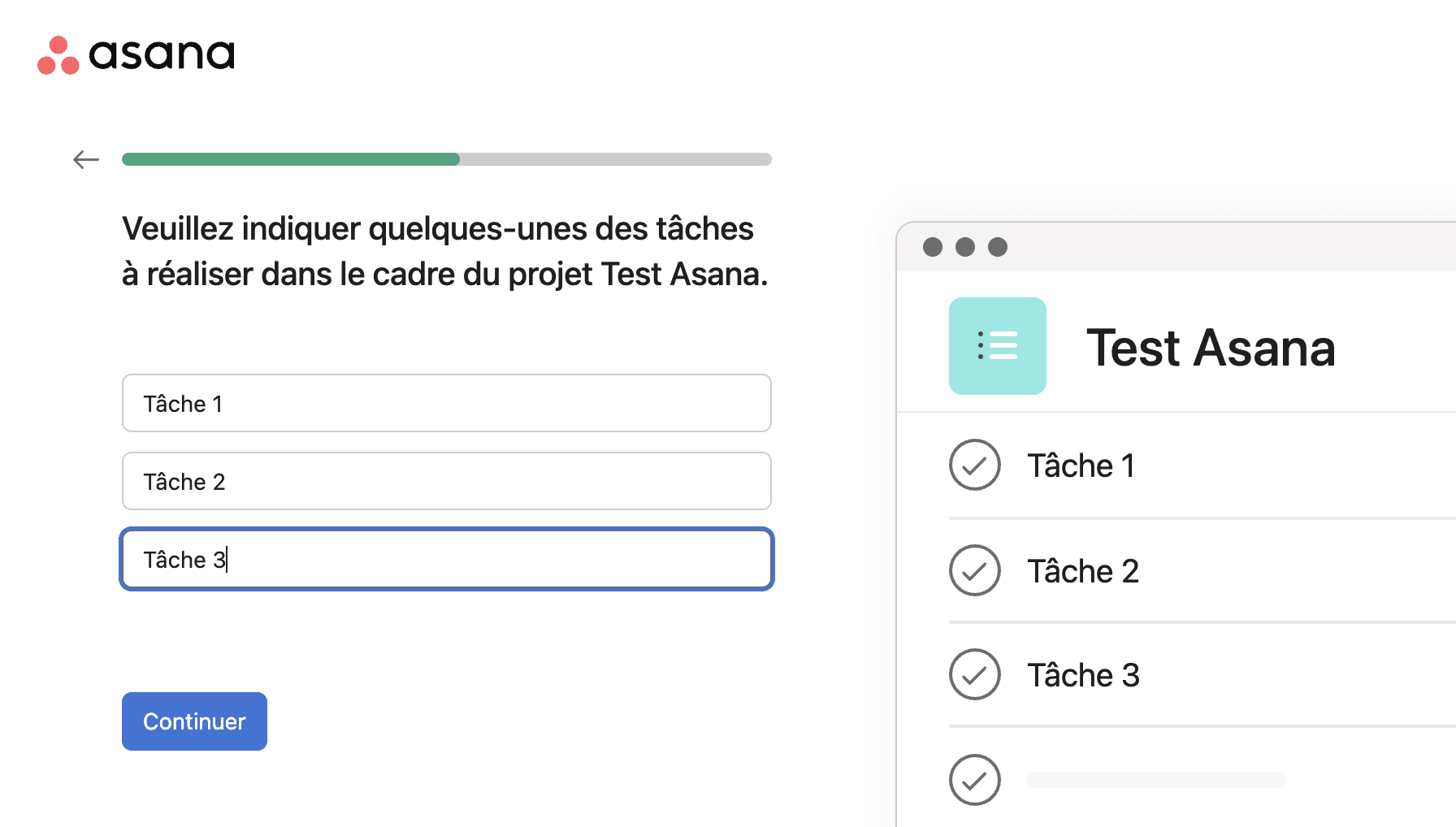 The terminology of “tasks” from the onboarding process
The terminology of “tasks” from the onboarding process
Kantree’s focus
Kantree talks right from the start about “cards” as a unit of information. This can be seen in their template library, where a card can represent a person, a meeting, a support ticket, a project, or of course, a task. Information is understood at a more global level. The user is launched into the application to take ownership of the information they want, which is reflected in the vocabulary used. The tool is designed to adapt to various project management methodologies like Scrum, Kanban, etc.
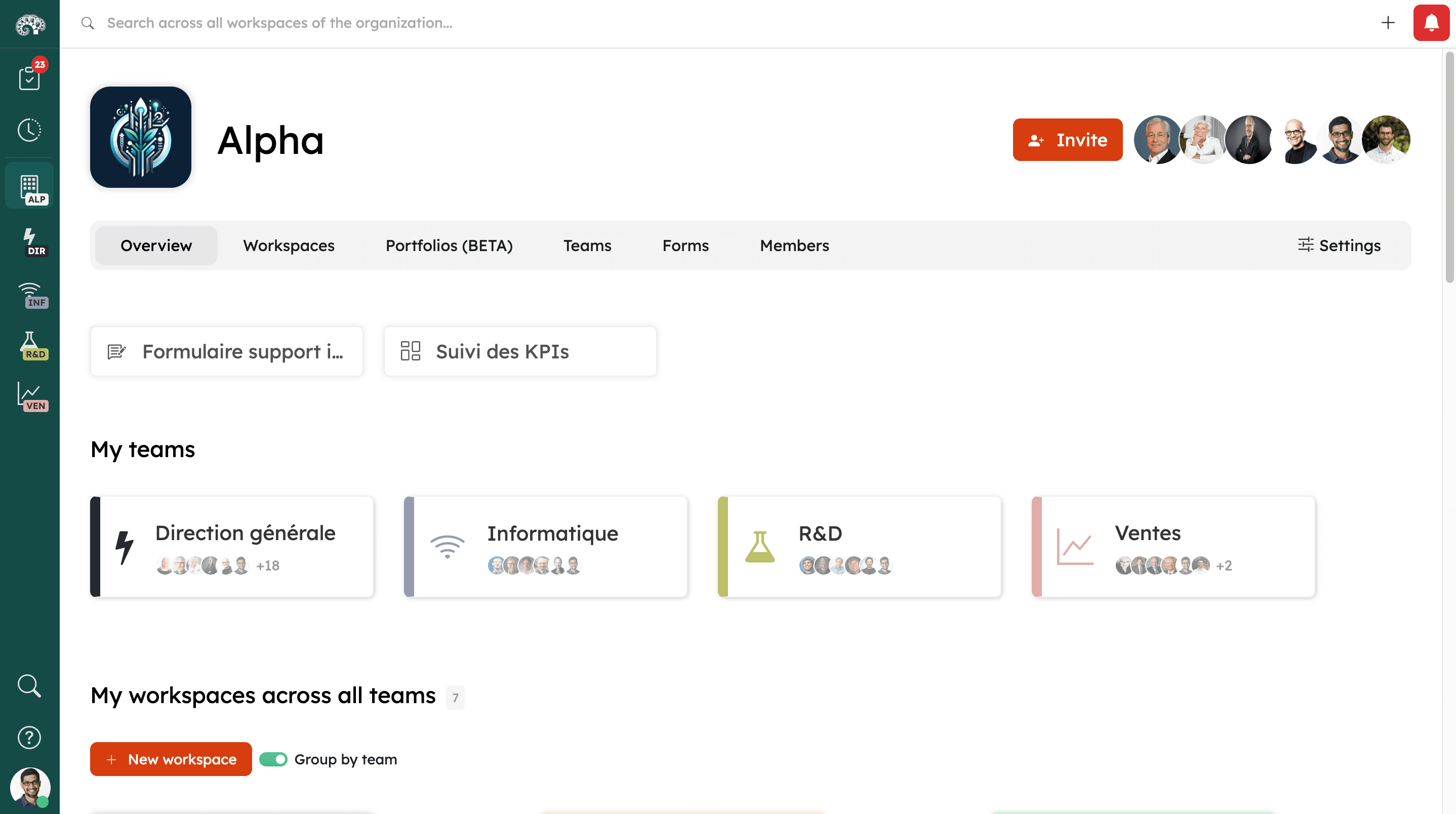 The team configuration view demonstrates the tool’s modularity
The team configuration view demonstrates the tool’s modularity
Fields in Asana cards
When opening a card, or rather a task as per Asana’s specific terminology, it is impossible to add a field directly in this task. You need to close the card and find the “list” view to locate the “add field” button at the end of the list. The possible fields are limited to a total of 8.
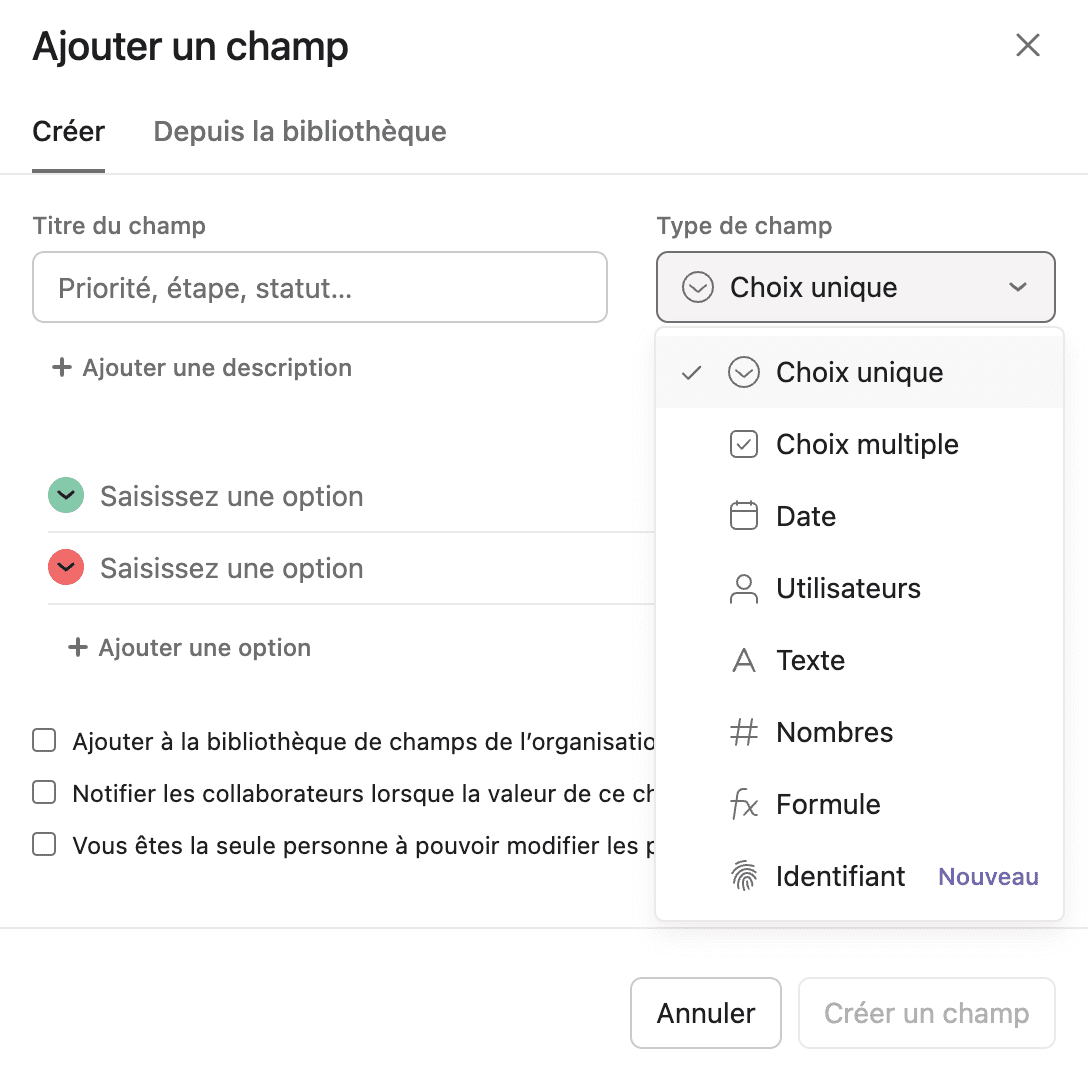 The creation of fields is limited
The creation of fields is limited
Fields in Kantree cards
Adding a field in Kantree is easy as it can be done as soon as a card is opened, regardless of the view you are in. Simply hover over it, and a dropdown menu will immediately appear. There are a total of 28 possible different fields.
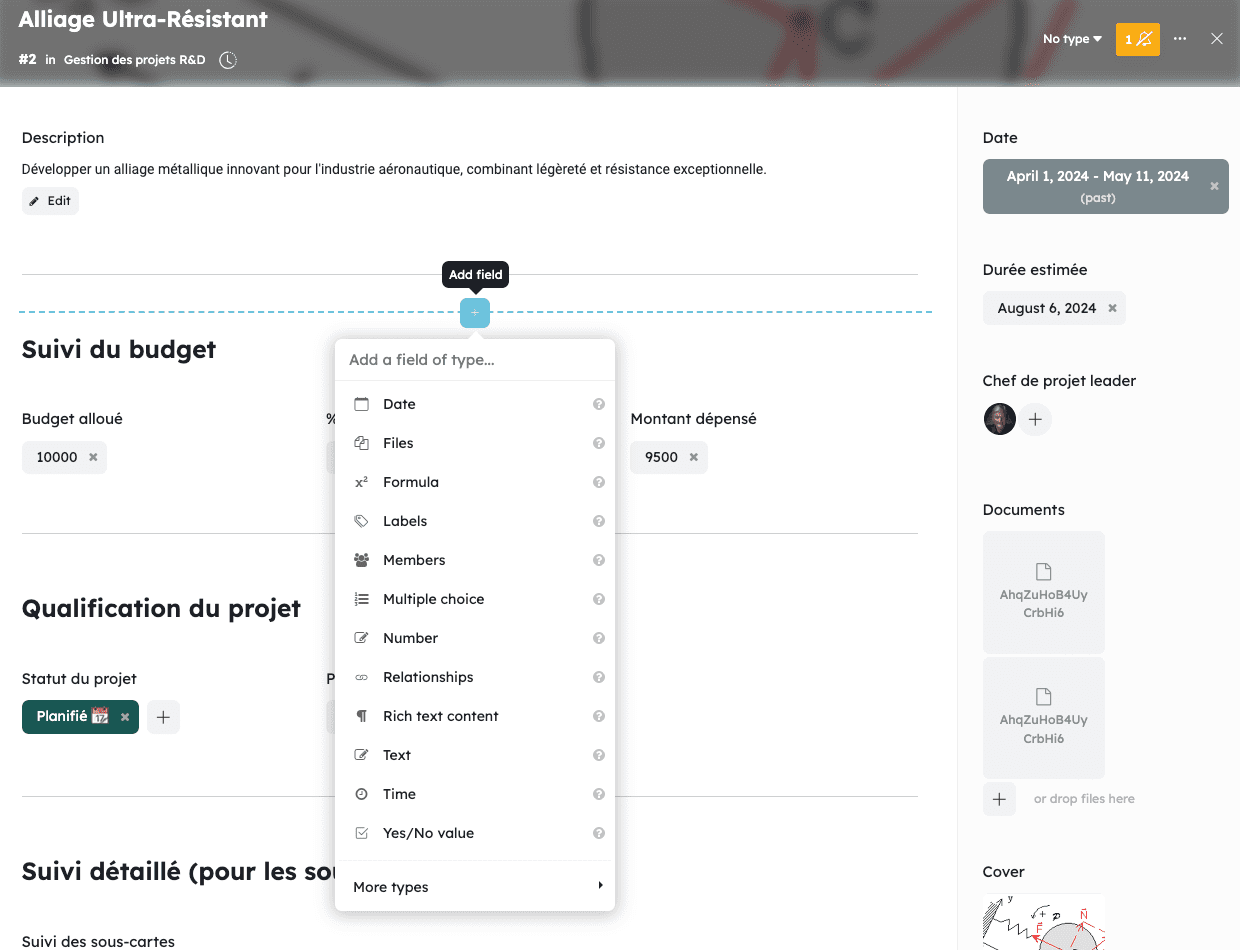 Field creation directly in the card
Field creation directly in the card
Hierarchy and data structure
While Asana limits subtasks to one level, Kantree offers an almost infinite data hierarchy. This capability of Kantree to manage complex structures makes it ideal for multidimensional projects or organizations with layered processes.
Subtasks in Asana
You can only add one level of subtasks. These subtasks do not have the structure of a card; they are merely a “to-do list” with no additional elements.
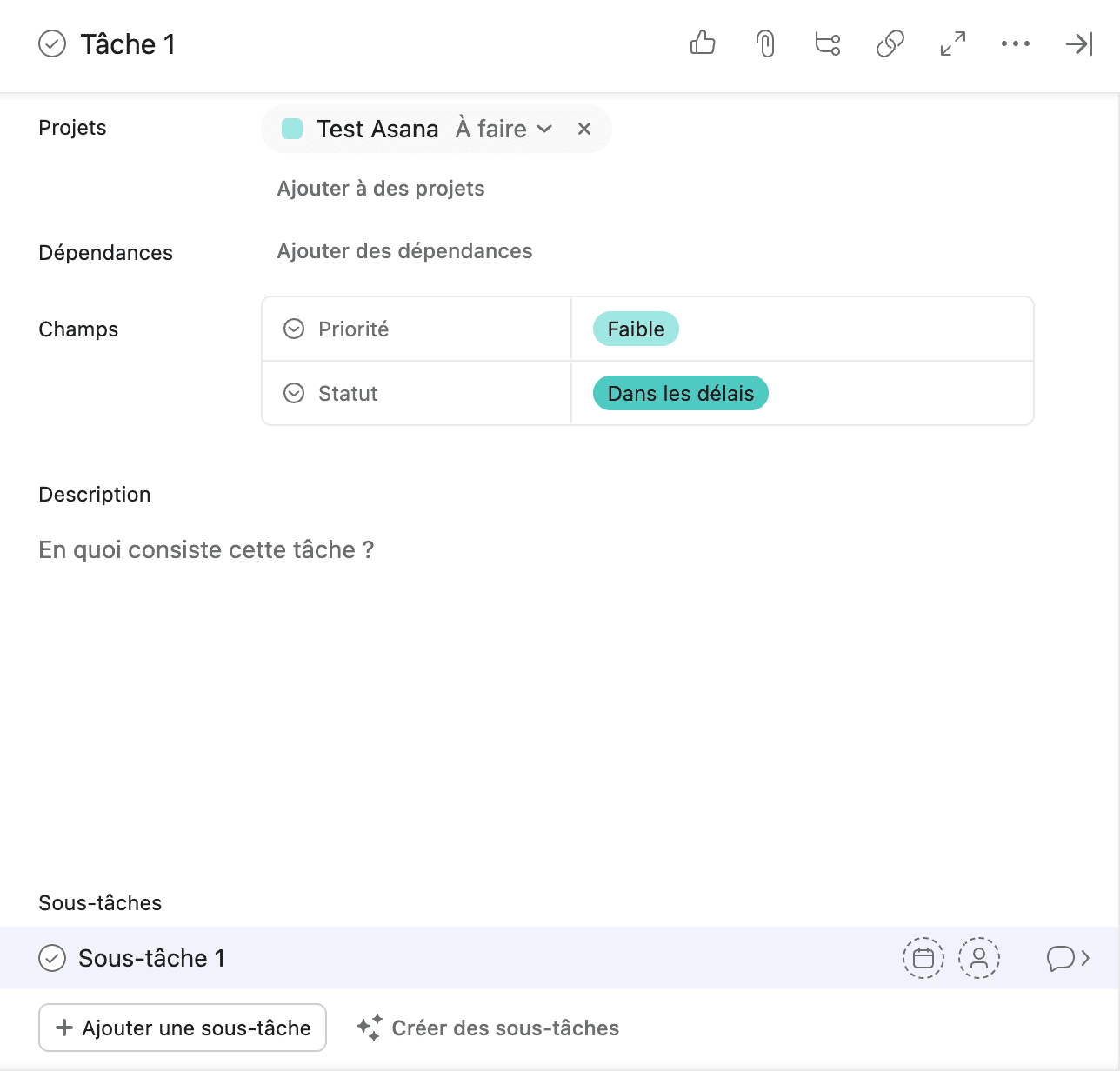 The view of a subtask in Asana
The view of a subtask in Asana
Subtasks in Kantree
You can add as many subtasks as you like, with an almost infinite data hierarchy. Creating a subtask has the same structure as a card, meaning all fields in a subtask can be customized, even completely different from the parent card if desired.
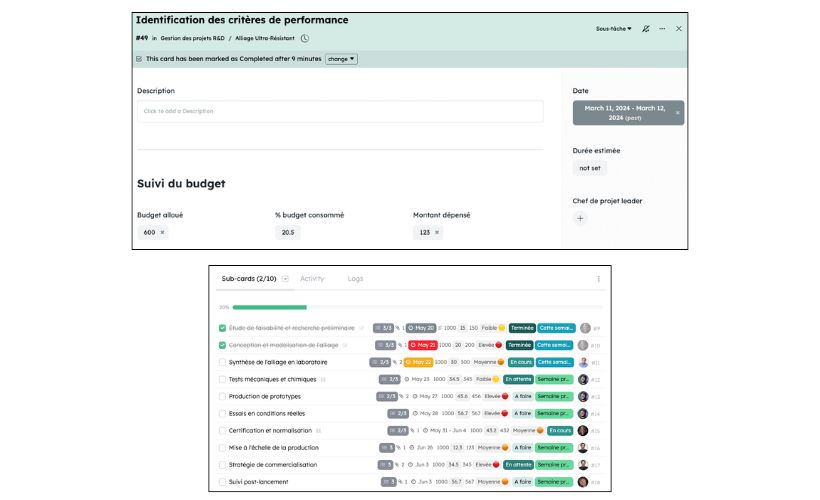 A subtask behaves like a card in Kantree
A subtask behaves like a card in Kantree
Filters and advanced search
Filters in Asana
Filters in Asana are limited to specific predefined elements in the application. These are simple filters, only usable in this precise context.
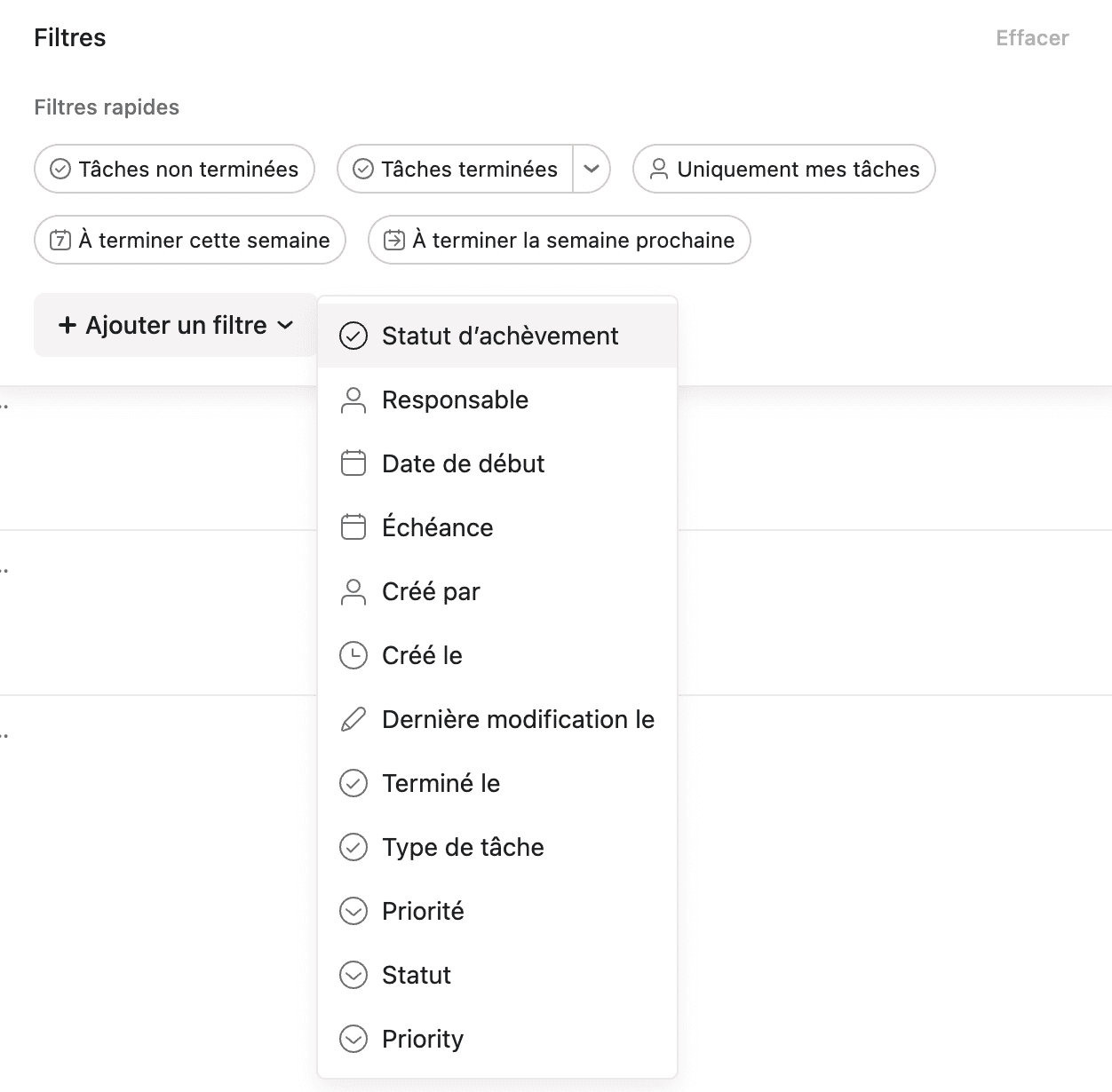 Limited filtering options in Asana
Limited filtering options in Asana
Filters in Kantree
Filters in Kantree follow a similar editor to Asana but offer much more flexible advanced filters. Using the KQL language, they allow for finer information searches and possible joins (and/or/if/…).
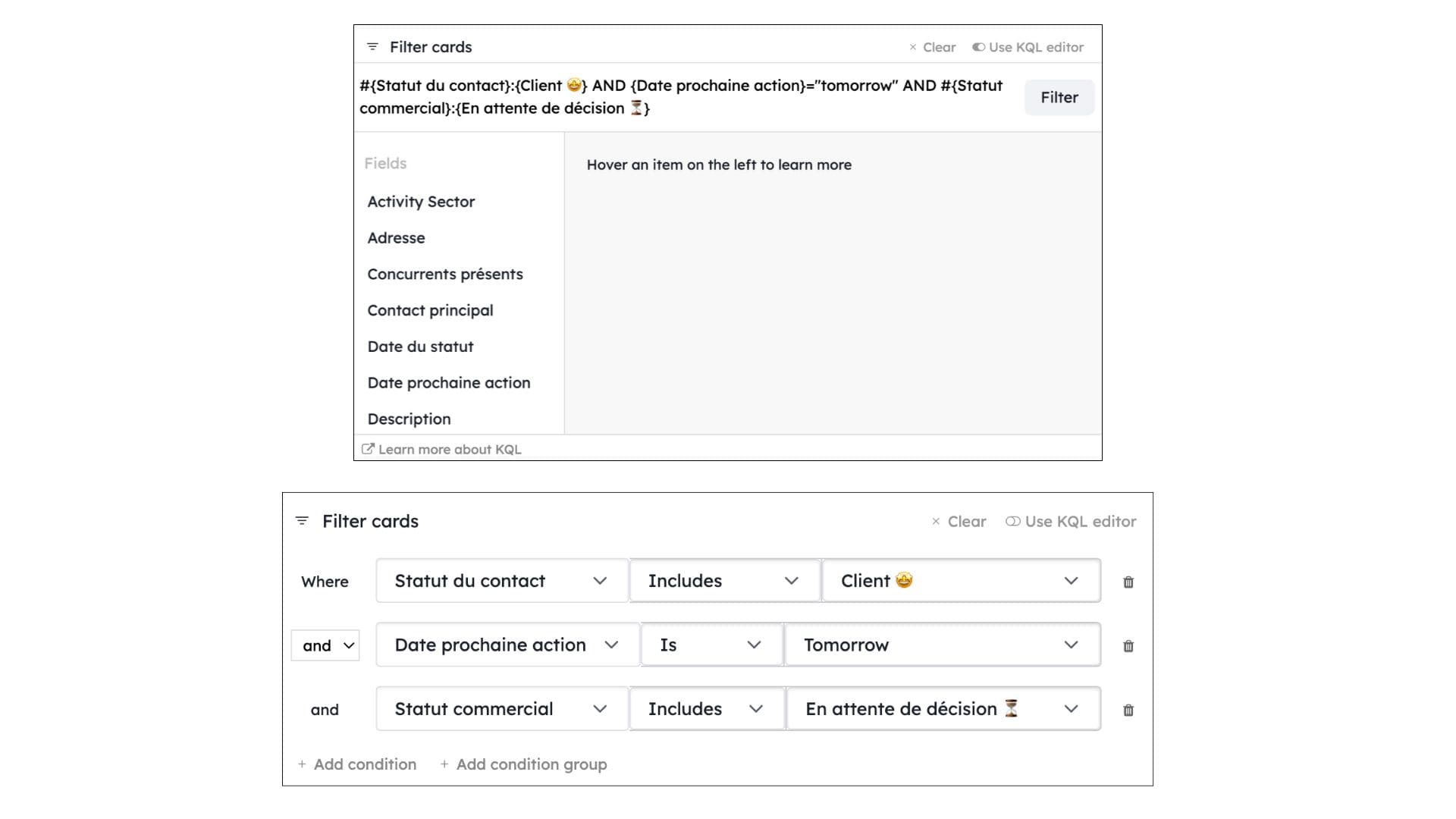 A multiple-choice or query language based on user preference
A multiple-choice or query language based on user preference
Kanban board visualization
While Asana offers a Kanban view, Kantree provides greater flexibility in card display and density. This feature of Kantree is particularly beneficial for teams managing multiple tasks simultaneously and needing a clear overview.
Kanban board in Asana
Asana’s Kanban board displays only 2 visible tasks per column. There is no option to reduce card size to fit more on the screen. The maximum number of columns that can be displayed on the screen is 4, with a maximum of 2 cards per column, totaling 8 cards visible.
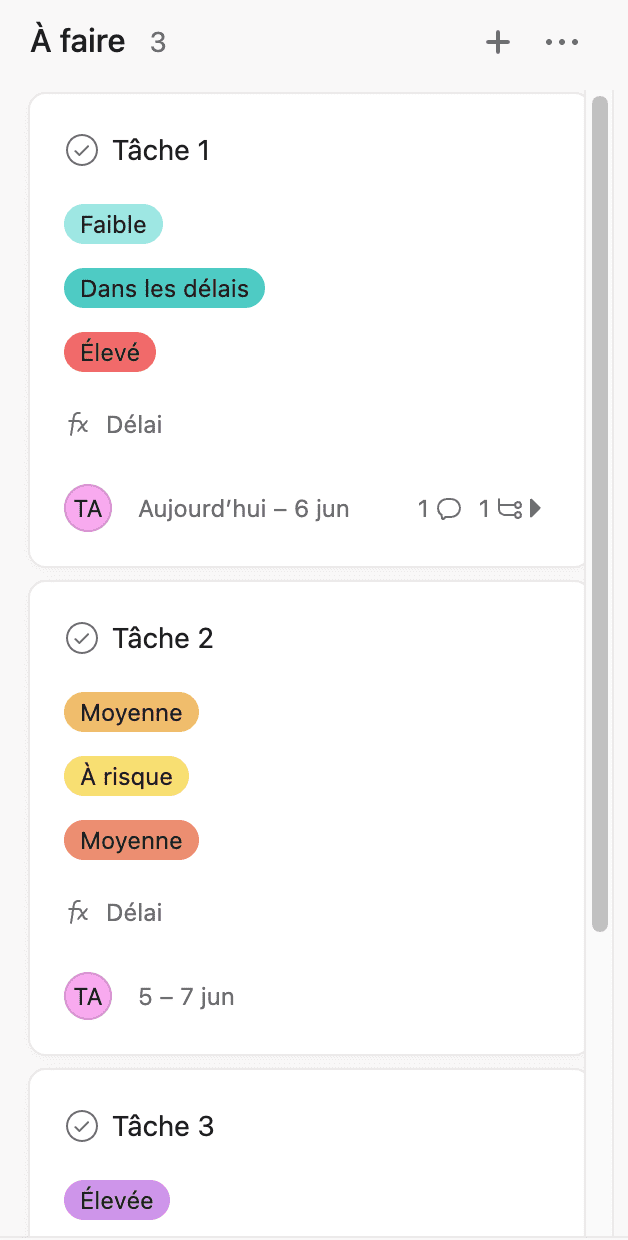 No option to change the card display
No option to change the card display
Kanban board in Kantree
Kantree allows users to adjust card density. For visual-heavy cards, 7 can fit on a screen, while for a Kanban without images, at least 8 cards per column are displayed. The Kanban view can show up to 6 columns, making it possible to view 6x8, or 48 cards—6x more than Asana.
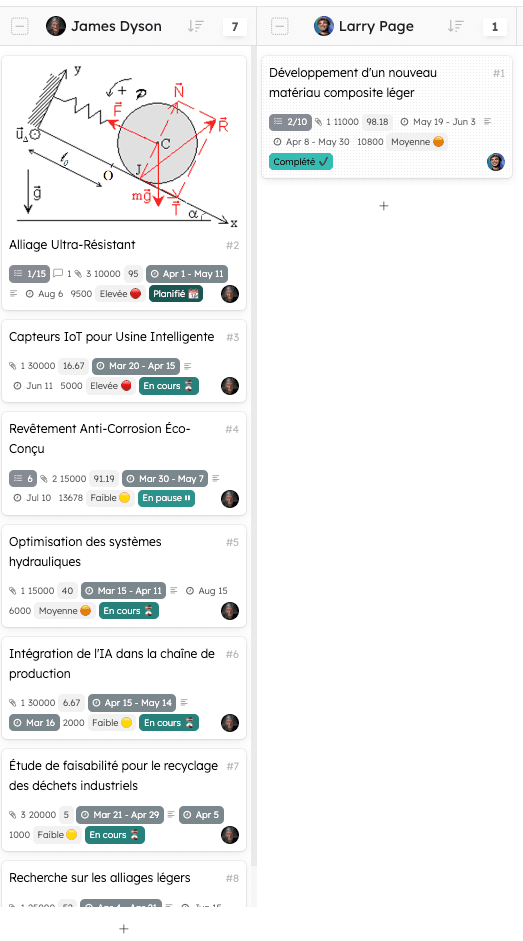 The display is designed to accommodate a large number of visible cards
The display is designed to accommodate a large number of visible cards
Centralized work tracking
Kantree stands out with its comprehensive workflow, offering better traceability and visibility on team activities, in contrast to Asana’s more limited approach. This feature of Kantree is crucial for managers who want to closely monitor their team’s progress.
Centralized work tracking in Asana
Asana only brings assignments into its “Inbox” space. So, even if a task is created or an action taken on a card relevant to the user, there’s no traceability. Testing with a self-assigned task showed that it didn’t appear either.
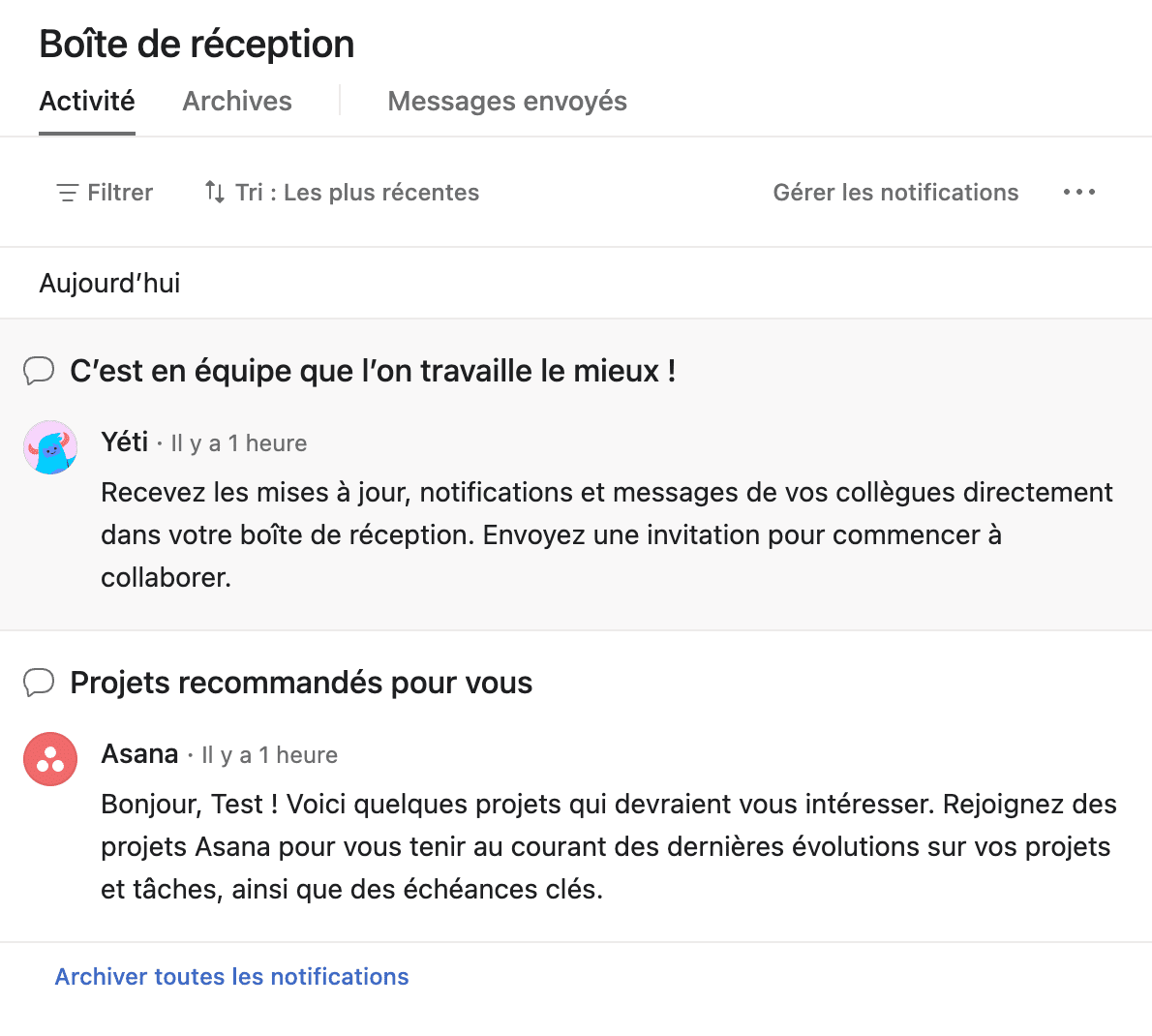 Centralized work tracking in Asana
Centralized work tracking in Asana
Centralized work tracking in Kantree
Kantree displays a workflow (like a social feed) as it allows users to follow updates on the cards they track, all centralized in the “My Work” space. Certain actions can be configured to meet user objectives, such as marking as “read” once a comment has been responded to.
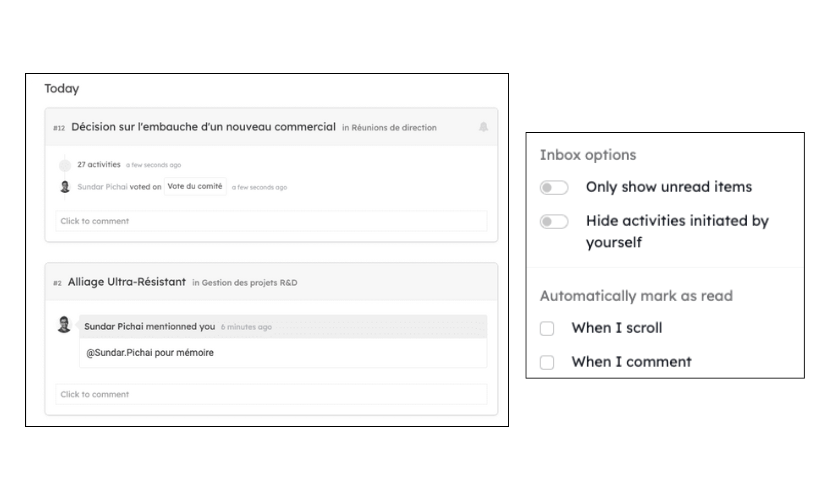 Activity feed that tracks everything in Kantree
Activity feed that tracks everything in Kantree
Automated workflows
While Asana excels in its integrations with third-party tools, Kantree shines with highly customizable internal automations. This flexibility is ideal for teams seeking to optimize internal processes without relying on external tools.
Automations in Asana
Asana’s automations are simple, again focused on tasks. Automations are built from pre-defined rules and are more effective when using native integrations covering specific tools, which may require additional costs.
 Automation editor in Asana
Automation editor in Asana
Automations in Kantree
Automations are easily configurable with the editor or by using the KQL language, making workflows much more robust for specific needs. There’s also the option to add conditional branches or specific rules when creating complex workflows.
 Automation editor in Kantree
Automation editor in Kantree
Forms and data collection
Kantree goes beyond simple data collection by offering tracking and communication features directly linked to forms, a feature missing in Asana. This is especially useful for teams that frequently interact with clients or external stakeholders.
Forms in Asana
Asana allows you to edit a form using a simple drag-and-drop interface. The only customization option is adding a cover image, with no further configuration possibilities.
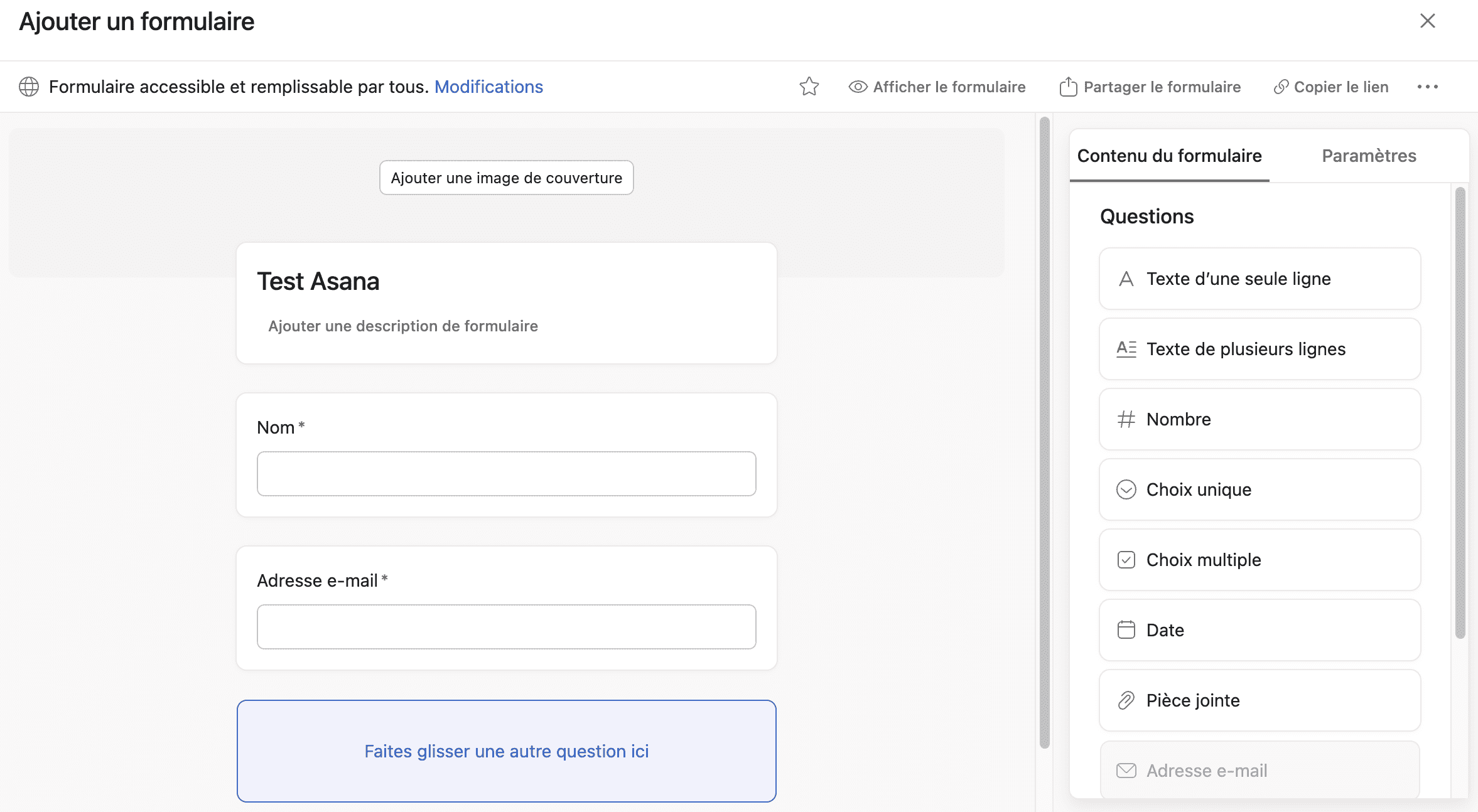 Form editor in Asana
Form editor in Asana
Forms in Kantree
Kantree provides a similar editor, with the added benefit of tracking. When a user submits a form, they can track the status of their request as it progresses through the workflow. They can also leave comments and engage in conversations based on the form.
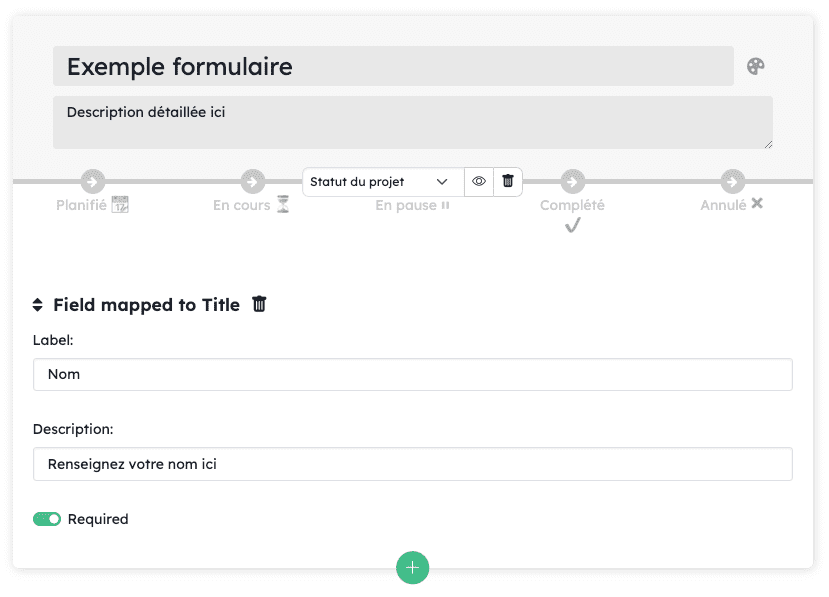 Flexible form editor in Kantree
Flexible form editor in Kantree
Conclusion: Which tool to choose for your project management team?
The choice between Asana and Kantree largely depends on your specific needs:
- Kantree is better suited for multidisciplinary teams requiring a flexible project management solution adaptable to various project types, used by multiple departments.
- Asana is ideal for project teams looking for a basic task-tracking tool.
Ultimately, the best agile project management software will be the one that fits your existing workflows while providing the flexibility to evolve with your team.
Further Reading
If you're interested in this topic, here are three resources for you:
-
1
Try Kantree here, it is free and you don’t need any credit card
-
2
If you want to learn more about how Kantree can adapt to your challenges, make an appointment with an expert on your use case.
-
3
Are you willing to join +1500 professionals receiving our advices and news on digitalization, collaboration, productivity? Register to our newsletter here.
If you found this article helpful, consider sharing it. You can easily do so below.